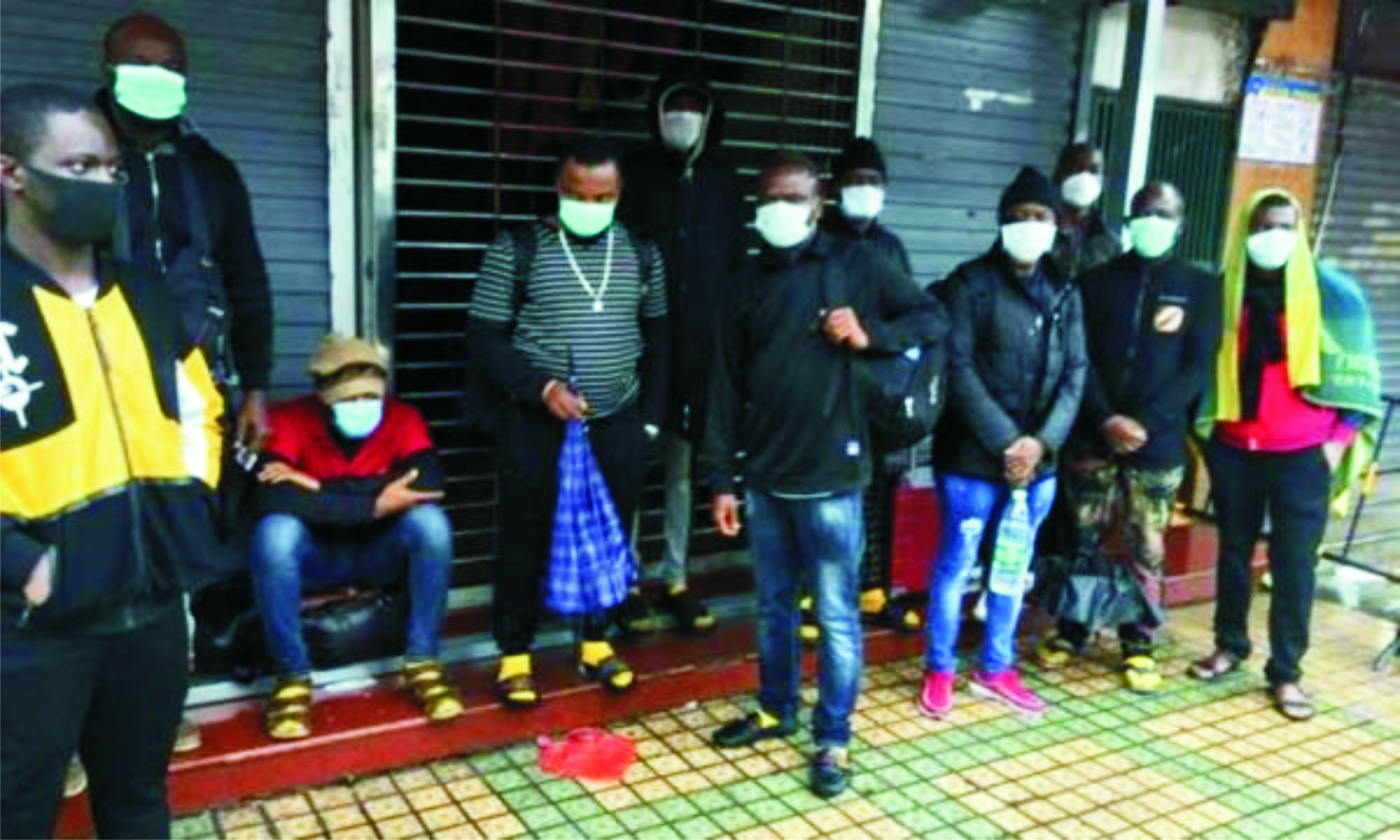Editorial
Against Maltreatment Of Nigerians In China

Nigerians and some African blacks living in the southern Chinese city of Guangzhou, home to Asia’s largest African diaspora, were extruded onto the street by the authorities of their host country, following the recent uptick in the Coronavirus (COVID-19) pandemic.
Some Nigerians have allegedly been summarily evicted by their landlords in Guangzhou at the behest of the police and were denied access to medical facilities and hotels where they sought alternative refuge. Also, they were being denied food at restaurants, corralled into quarantine, forcibly tested for the virus and their passports confiscated. These are unacceptable diplomatic conduct, and thus, condemnable in all ramifications.
They were accused of being the purveyors of the virus even when some of them had no recent travel history. Among the victims are businessmen, travellers and students. After the initial recovery from the pandemic, China recorded 108 confirmed new cases as of April 12 in a few cities, sparking fresh concerns.
For several years, China and Nigeria have been inextricably intertwined. China executes critical projects across the country and has remained one of Nigeria’s enormous trading partners. Both countries have worked so closely that eighty per cent of Nigeria’s bilateral debt is owed to China. That is why the Asian giant consistently stresses the significance of Sino-Nigeria alliances.
Co-operations between Nigeria and China risk irrevocable disruption if the Chinese government proceeds with downplaying deeply rooted racial predispositions and dismisses the international outrage at the treatment of Nigerians in particular and Africans in general.
The clampdowns on Nigerians and black people in that country, ostensibly to forestall a re-emergence of COVID-19, is xenophobic, deeply entrenched in a longstanding resentment toward Africans in the Asian country. Anti-African sentiments in China are active and date back to decades, manifesting in riots aimed at Africans in 1988-1989 in Nanjing.
Although we concede that Chinese authorities could quarantine anyone found to have contracted COVID-19 regardless of nationality, we think that the isolation or eventual deportation of any Nigerian or foreigner who tests positive to the virus but flagrantly flouts strict sequestration rules, should be a joint undertaking between both countries.
But the Minister of Foreign Affairs, Geoffrey Onyeama, said the allegations had been investigated and found to be untrue, blaming the issue on “communication gap.” At a joint news conference, both governments pledged renewed commitment to combating the pandemic and bridging the line of communication henceforth. The Speaker of the House of Representatives, Femi Gbajabiamila, said the row had been resolved without giving any details. This is wrong.
This treatment of Nigerians abroad evokes many ideas about national values, foreign relations, human rights, diplomacy and law. Consequently, the Federal Government should seek remedies for these breaches against its citizens. A thorough investigation should be conducted to get the Chinese authorities to halt the ill-treatment and abuse of hapless and helpless Nigerians in that country.
Truth is that the ugly experiences of Nigerians in other climes constitute a sad reflection of the government’s affliction of their own citizens on home soil. Nigerians are daily subjected to the negative effects of massive official corruption, wanton human rights abuses, name-calling, extreme poverty, among others, by a government they elected to protect them.
In 2016, President Muhammadu Buhari came under intense fire for his comments in an interview with a reputable tabloid in the United Kingdom (UK) where he claimed that Nigerians were unwelcome by other countries because of their reputation for crime. If our President could make such an extremely adverse remark about his people, how would the average Nigerian be perceived by other nationals?
Only lately, Nigerians residing abroad who indicated interest in returning home on account of the COVID-19 pandemic were asked by the federal government to bear the expenses of their evacuation to Nigeria. We deem this exceptionable and advise the government to emulate the glowing examples of Britain and the United States who bore the cost of evacuating their own citizens from COVID-19 endemic nations.
Since the long-term friendship between China and Nigeria is widely acknowledged, we advise that this relationship must not be deprived of mutual respect. Even under the current universal emergency situation, it is imperative that China accords Nigeria due respect as a sovereign nation and an equal partner in the global fight against the COVID-19 pandemic.
This is our stand.
Editorial
AFCON ’25: Bravo, Super Eagles, But…

Editorial
Fubara: Celebrating A Leader At 51

Editorial
Beyond Accessing Bonny By Road

-

 Politics5 days ago
Politics5 days agoPFN Rejects Call For INEC Chairman’s Removal Over Genocide Comments
-

 Rivers5 days ago
Rivers5 days agoFasthire, PHCCIMA, CIPM Host CareerFest 2026 In PH
-

 Sports5 days ago
Sports5 days agoEnekwechi wins Orlen Cup in season opener
-

 Politics5 days ago
Politics5 days agoHoodlums Disrupt LP-ADC Defection Event In Lagos
-

 Sports5 days ago
Sports5 days agoFalconets, Senegalese Lionesses arrive Ibadan for qualifier
-

 Sports5 days ago
Sports5 days agoSimba open Nwabali talks
-

 Politics5 days ago
Politics5 days agoRemoval From INEC’s Portal, Abure-Led LP Faction Mulls Legal Action
-

 Niger Delta5 days ago
Niger Delta5 days agoTinubu, Jonathan, Diri Pay Last Respect To Ewhrudjakpo

